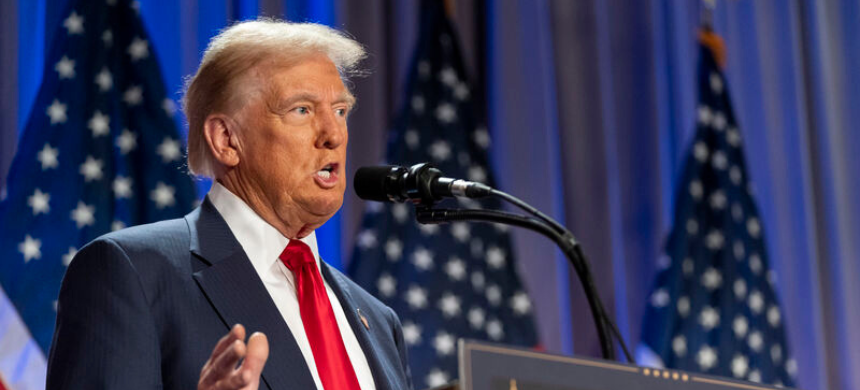Trump Announces Tariffs on Mexico, Canada, and China, Sparking Global Trade Concerns
United States President-elect Donald Trump has unveiled plans to implement significant tariffs on imports from Mexico, Canada, and China. Announced Monday, these measures include a 25% tariff on goods from Mexico and Canada, alongside a 10% tariff on Chinese imports.
Tariffs Linked to Border and Drug Issues
Trump stated that the tariffs would take effect on his first day in office and remain in place until irregular border crossings and drug trafficking are eliminated. “Both Mexico and Canada have the absolute power to address these long-standing issues,” he declared on Truth Social. “Until they do, it’s time for them to face significant consequences.”
Trump also criticized China for allegedly failing to curb fentanyl smuggling into the U.S., reiterating his stance on the severity of drug-related concerns.
Escalation in Trade Tensions
The announcement represents one of Trump’s most assertive trade policies since his 2016 presidency. It revives discussions around steep tariffs of up to 60% on Chinese imports, a move that could disrupt the US-Mexico-Canada Agreement (USMCA) and broader global trade frameworks.
Reactions from Canada and China
Canadian Deputy Prime Minister Chrystia Freeland rejected the need for punitive measures, emphasizing the mutually beneficial nature of U.S.-Canada trade and Canada’s ongoing efforts to enhance border security. Ontario Premier Doug Ford described the tariffs as a “devastating” blow to industries, urging a unified Canadian response.
China’s Embassy in Washington responded cautiously, warning against the negative repercussions of a trade war and advocating for collaborative solutions.
Read More: Government Seeks Early Engagement with Trump Team
Economic Implications
The proposed tariffs have already rattled global markets, weakening currencies such as the Canadian dollar, Mexican peso, and euro against the U.S. dollar. Economists warn the tariffs could drive inflation in the U.S., complicating Federal Reserve rate policies and undermining global economic growth.
Gary Ng, a senior economist at Natixis, highlighted the double-edged impact of tariffs: “They may bolster U.S. growth in the short term but risk destabilizing the global economy.”
Threat to USMCA and Trade Stability
The tariffs raise concerns about the future of the USMCA, a trilateral agreement designed to promote free trade between the U.S., Canada, and Mexico. Experts caution that imposing unilateral tariffs undermines the agreement’s principles and risks eroding trust among signatories.
“The proposed tariffs could effectively dismantle NAFTA’s successor,” economist Tim Harcourt remarked, noting collateral damage to non-drug-related goods and trade sectors.
Political and Economic Divide
Supporters of Trump’s tariffs argue they could drive job growth and strengthen the U.S.’s negotiating position in trade agreements. However, critics warn of inflationary pressures and long-term economic instability.
As the tariffs loom, the move has heightened tensions between the U.S. and its top trading partners, setting the stage for a contentious start to Trump’s presidency.











